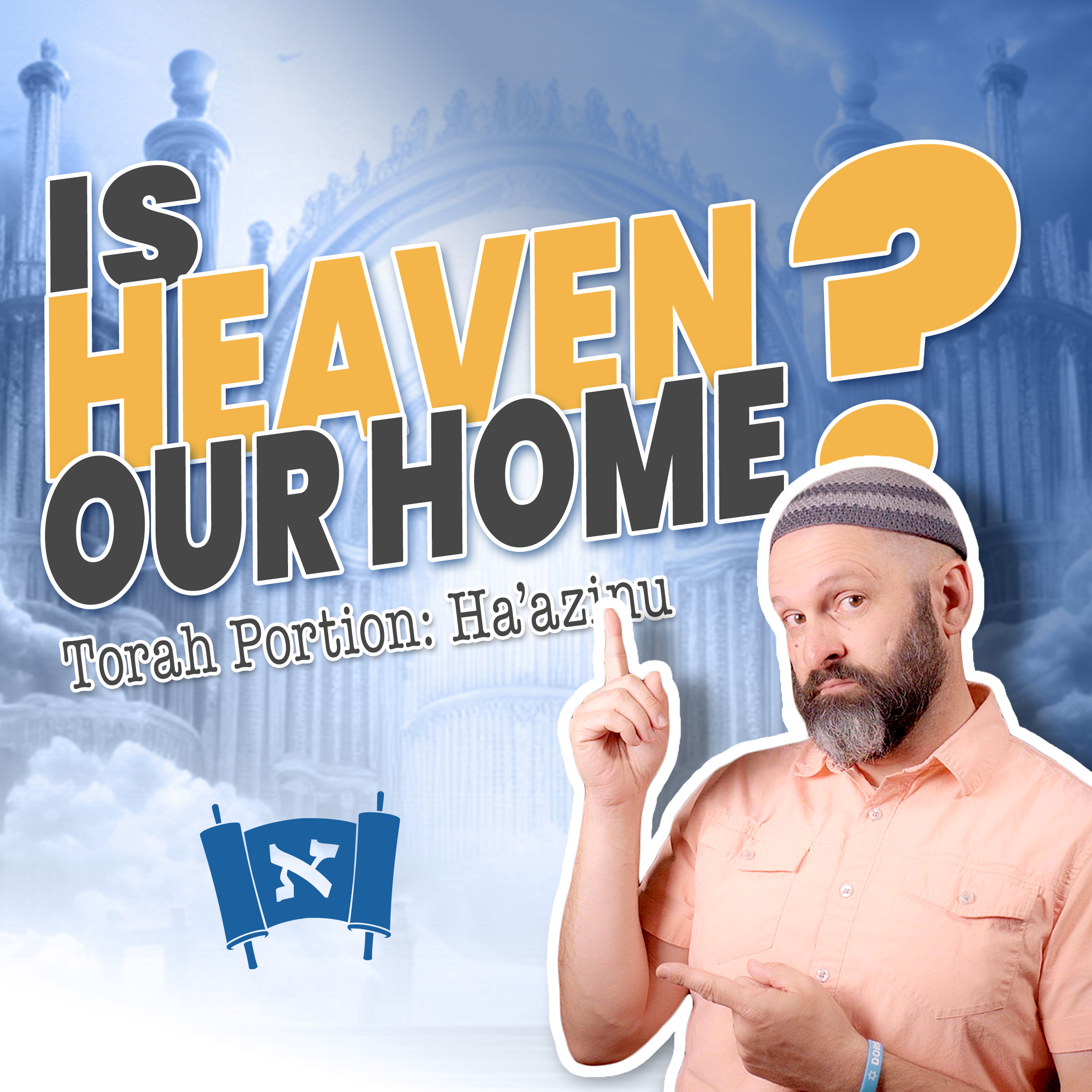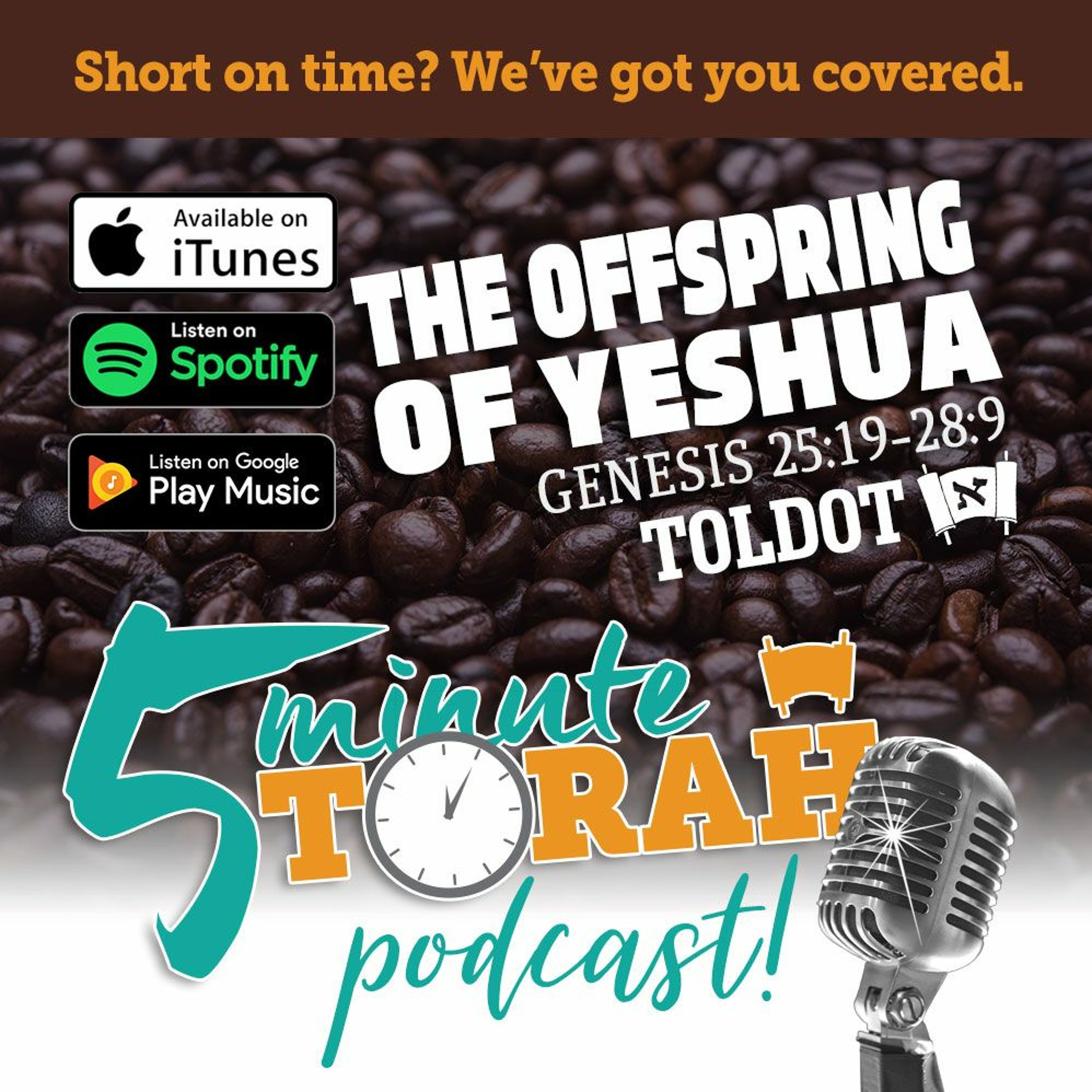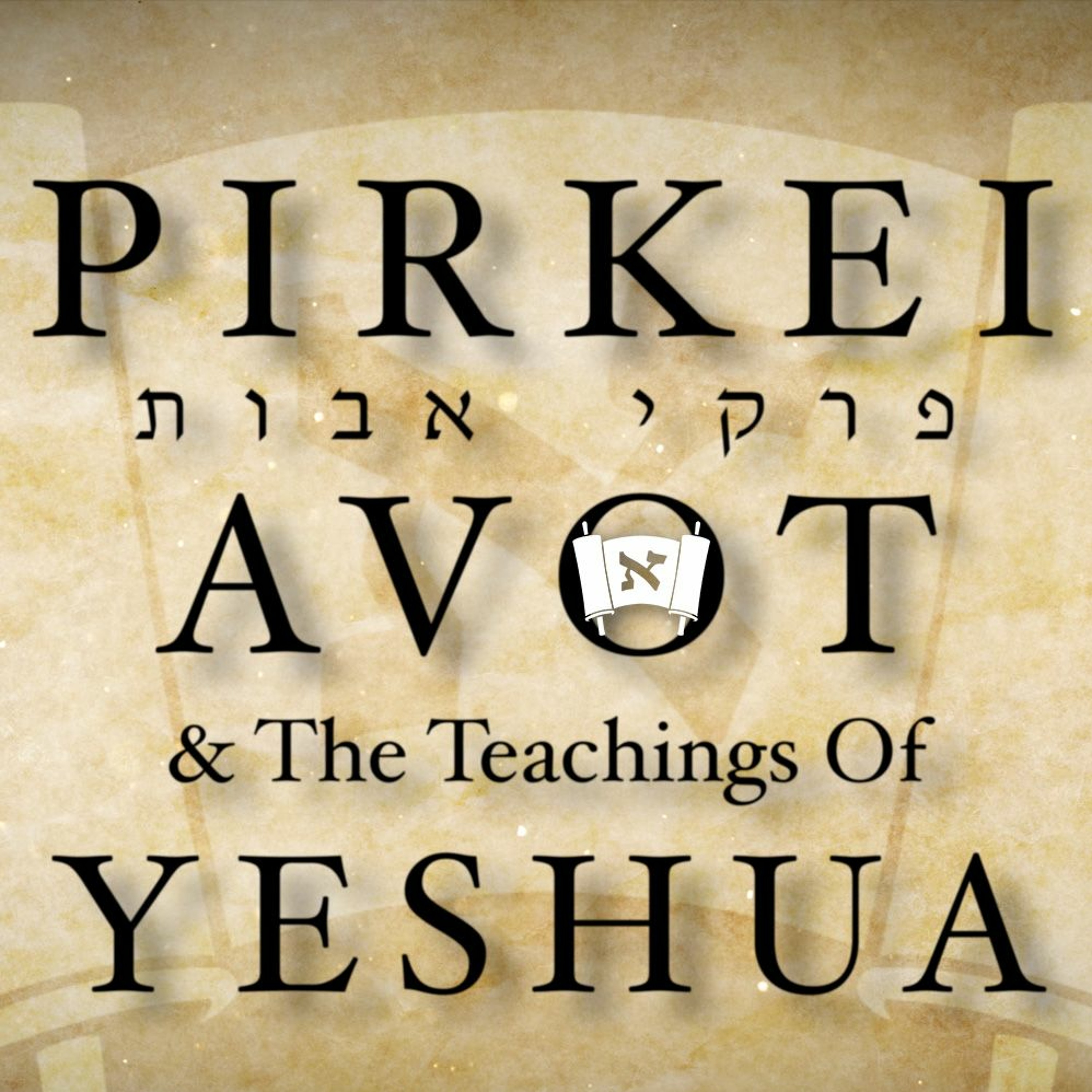Episode Transcript
[00:00:00] Heaven, glory, land, the celestial city, the land beyond, where there will be no more tears, no more sorrow, no more pain, the eternal reward of those in Christ and the resting place of the saints.
[00:00:18] Or is it? Is heaven our eternal destination? Is our hope to one day walk the streets of old in this place called heaven? Or have we misunderstood what the Scriptures teach us about what happens beyond the veil of this life? If you want to know more, stick around for this week's five minute Torah.
[00:00:43] This week we are studying the portion of Hazinu Deuteronomy 32, verses one through 52, and here are the three things that you need to know about it. Number one Shirat Hazinu Song of Moses. All but a few of the 52 verses of this week's Torah portion comprise what is called Shirat Hazinu, also known as the Song of Moses. It is a song that the Lord instructs Moses to teach the children of Israel before they enter the Promised Land. Like the Torah itself, this song is given as a continual reminder for the children of Israel to follow the Lord's instructions and keep the covenant that they made with Him at Sinai so they don't suffer the consequences of infidelity. Number two, Yeshurun, the ideal nation Israel is called yesharun for the first time in the Torah. In this portion, yeshirun, or Jesharun in most English translations, means upright, an idiom which expresses righteousness. This word is only used four times in the entire Hebrew Bible, three of which are found in the last two portions of Deuteronomy. In our current Torah portion, it's used to describe Israel's spiritual state before falling away from the Lord. In verses 15 through 18, it is a term that's used to describe Israel in their ideal state, free of the trappings of sin. And number three, the death of Moses. At the very end of our tour portion, god tells Moses to climb Mount Nebo in order to view the Promised Land before he is gathered to his people. Like Aaron, his brother, he's reminded once again that he won't be able to enter into the land. Quote because you broke faith with Me in the midst of the people of Israel at the waters of Merabah Kadesh, in the wilderness of Zin, and because you did not treat me as holy in the midst of the people of Israel. Verse 51 no one knows where Moses is buried, but it's said that God himself buried his beloved friend. Can you believe it? In just a few short weeks, we'll wrap up the Book of Deuteronomy and start back in Genesis with a brand new Torah cycle. Now is the time to prepare for the new cycle by picking up a copy of one of the five minute Torah commentaries. I've had several people ask me what the difference between these books are? The difference is that they each contain unique messianic commentaries on each of the weekly torah portions. If you're looking for a quick, thought provoking insight into the weekly Torah portions for your shabbat table, your family devotions, your small group, et cetera, any of the volumes of Five Minute Torah would be a perfect choice. And by purchasing a copy of these resources, you can help support this channel and the ongoing creation of quality messianic resources. Thanks in advance for your support. This week's Torah commentary is called The Torah and the Resurrection and comes from my book, five Minute Torah Vol. Two.
[00:03:45] In the days of our mastery, yeshua, the Pharisees and the Sadducees debated the uncertainty of the resurrection. The Pharisees believed in the resurrection of the dead, whereas the Sadducees rejected this concept. The reason for this debate was that the Torah does not explicitly mention any kind of a resurrection. However, passages within the Torah seem to point to a resurrection. A few of these passages are found within the last two Torah portions. Last week we read and the Lord said to Moses, behold, you are about to lie down with your fathers. Then this people will rise and whore after the foreign gods among them in the land that they are entering, and they will forsake me and break my covenant that I've made with them. Deuteronomy 30 116 the illusion in this passage is not obvious in our English translations. However, it's more pronounced in the Hebrew. In English, we read, you are about to lie down with your fathers. Then this people will rise. They are two separate thoughts, one regarding the death of Moses, and the other about what the children of Israel will do after his death. In Hebrew, however, we can read the first part of this as a single thought shochave im abotecha v'kam you will lie down with your fathers and arise. This alternate reading is put forth by Ibanezra and others. It's supported by the fact that the Hebrew word for the phrase and arise vav kuf MIM, is in the singular and can refer back to Moses. This reading doesn't supersede the literal reading of the passage, but it is an additional insight we can derive from it. Another passage that supports this concept of a resurrection is in this week's Torah reading. Toward the end of the Song of Moses, we read See now that I even I am he, and there is no God beside me, I kill and make alive I wound and I heal, and there is none that can deliver out of my hand. Deuteronomy 32 39. Several of our sages see an allusion to the resurrection in this passage because of the wording. Although the phrase I kill and I make alive seems to refer to various individuals who are destined to die or live, in context, this phrase is connected to I wound and I heal. In the Talmud, Rabba uses this passage to show that just as the wounding and healing are actions describing a single individual, the actions of killing and making alive are as well. This comes from Pesachim 68 eight. Ibn Ezra supports this reading with a passage from the Prophets which says the Lord kills and brings to life. He brings down to Shiol and raises up one Samuel two six. But whether the concept of the resurrection is explicitly embedded in the Torah or not, the debate between the Pharisees and Sadducees was settled when Yeshua rose from his grave on the third day. This concept was an extremely important and pivotal belief among the early believers. Paul claims three different times that he is being brought on trial because of his belief in the resurrection. He also tells the disciples at Corinth that the resurrection is the foundation of our hope. Now, if Christ is proclaimed as raised from the dead, how can some of you say that there is no resurrection of the dead? But if there is no resurrection of the dead, then not even Christ has been raised. And if Christ has not been raised, then our preaching is in vain and your faith is in vain. If in Christ we have hope in this life only, we are, of all people, most to be pitied. But in fact, Christ has been raised from the dead, the firstfruits of those who have fallen asleep, one corinthians 1512 through 14 and 19 through 20. Unfortunately, many followers of Yeshua have traded in their hope in a biblical resurrection for the hope of an eternal noncoporeal bliss in heaven because of a misunderstanding of Hebrew idioms used within the Apostolic Scriptures. But the Scripture never speaks about heaven as the eternal resting place of the righteous. They do, however, continually affirm the physical resurrection of the dead, a hope that is unique to biblical faith. This is where we should put our hope. In the Book of Revelation we read and I heard a loud voice from the throne saying, behold, the dwelling place of God is with man. He will dwell with them, and they will be his people, and God Himself will be with them as their God. He will wipe away every tear from their eyes, and death shall be no more. Neither shall there be mourning, nor crying, nor pain anymore, for the former things have passed away. And he who was seated on the throne said, behold, I am making all things new. Revelation 21, verses three through five no the concept of a physical resurrection is not one that was newly imagined by Paul or the Apostles. It is one established in the Torah, revealed by the prophets and sages, demonstrated by Yeshua and elucidated by the apostles. It is our eternal hope and the future reality. May we never give up on that hope as we await our Master's return. I'll see you again soon with another messianic insight into the eternal Torah of God. Blessings from Amet Ha Torah.


